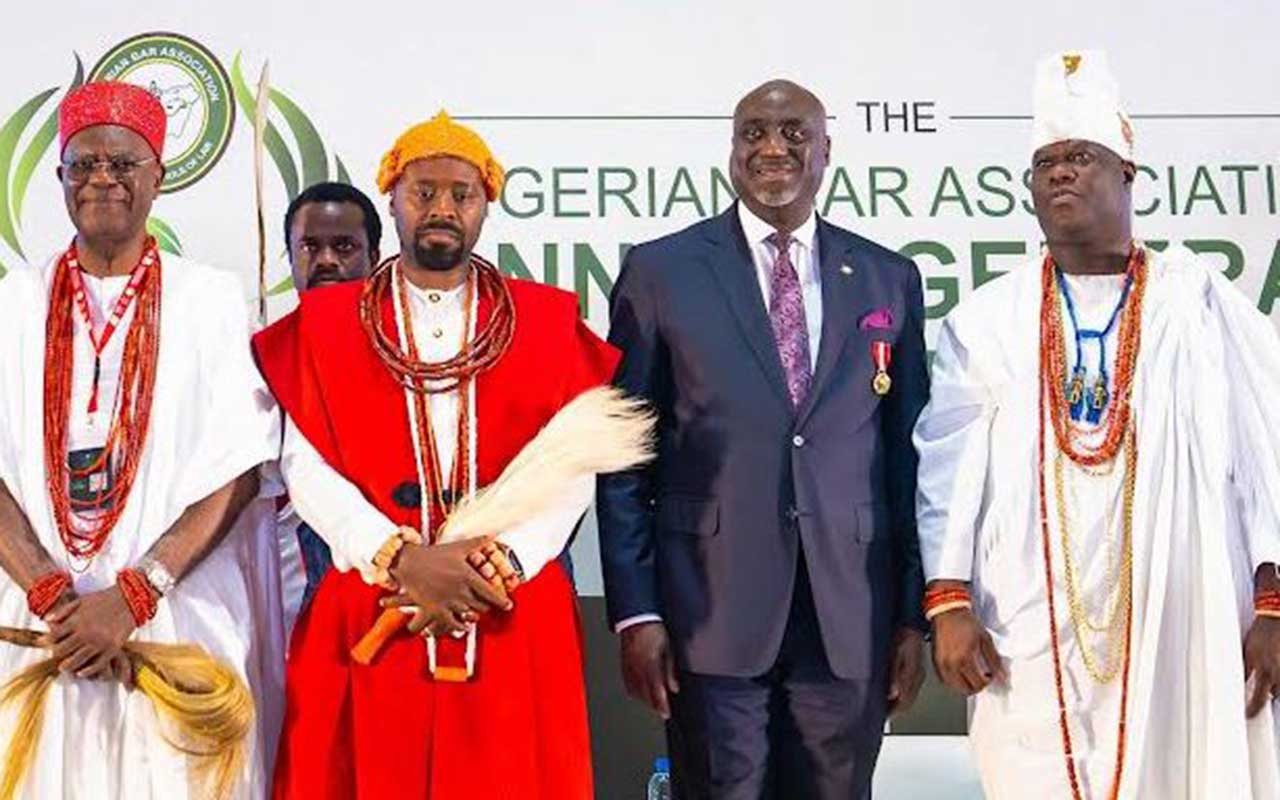
• Pedro advocates swift reforms in justice administration
The Economic and Financial Crimes Commission (EFCC) has called on the National Assembly to enact a law to support the whistleblower policy.
EFCC Chairman, Ola Olukoyede, made this call at the Nigerian Bar Association (NBA) conference with the theme: ‘Lawyers in the Spotlight: Essential Anti-money Laundering Considerations for the Legal Profession’, yesterday, in Lagos.
He noted that once the law is enacted, it would make it mandatory for law enforcement agencies to protect the whistleblowers.
The EFCC boss tasked lawyers not to indulge in activities that encourage people to commit crimes, while tasking them not to protect suspected criminals, as they should bring any person who has committed financial crimes to court.
Meanwhile, Lagos State Attorney General and Commissioner for Justice, Lawal Pedro (SAN), has called for swift reforms in the administration of justice, emphasising the need for speed and efficiency in the judicial process.
Olukoyede told lawyers: “Don’t try to protect suspected criminals; people who must have committed financial crimes. So, if you know where, who or whatever we are looking for, it is your duty to bring that person to the open and we will do our part.”
Speaking on the challenges of delayed prosecutions, the EFCC boss stressed that the anti-graft agency would ensure that cases were prosecuted, “no matter how long it takes”, with strict adherence to the law.
He noted that EFCC’s responsibility and mandate were to investigate and prosecute financial crimes, adding that the job was not only for the body, but all law enforcement agencies, adding: “We are saying this in the interest of our practice; if we do the right thing and train our system, all these security bodies won’t harass anyone.”
The anti-graft czar charged lawyers to perform their civic responsibilities as Nigerians.
While highlighting the importance of mutual respect between lawyers and the EFCC, he called for dignity in the way legal professionals and law enforcement agents handle their roles.
He committed, however, to treating with respect and fairness every individual who interacts with EFCC, whether suspect or legal practitioner.
“We are all Nigerians before becoming lawyers. You have a duty to perform. Being a lawyer does not exempt you from your civic responsibilities. Comply and do the right thing.
“Under my watch, everyone that comes to the EFCC will be treated with dignity, regardless of the circumstances,” he said.
He announced plans to develop the necessary infrastructure and provide expertise for effective case analysis and examination while reiterating collaboration among the body, United Nations Hospice and Nigerian Ports Authority (NPA).
President of NBA, Yakubu Maikyau, stated that even as they might be required to be involved in the business of their clients, it does not include doing transactions beyond the threshold allowed under the Money Laundering Act.
Maikyau called for more collaboration with the EFCC and other anti-graft agencies to fight corruption.
Lawyer and human rights activist, Mike Ozekhome, advised the EFCC to adopt the Western standard of investigation by making proper investigations before embarking on any arrest and publicity in the media.
SPEAKING at the Lagos exhibition during the NBA Conference, Pedro noted the present pace of justice as insufficient, calling for significant changes to support economic growth and investment in Lagos.
“The way we administer justice must change. It’s no longer enough to provide access to justice; we must ensure that cases are resolved promptly, as justice delayed is justice denied,” Pedro said.
He stated that the state was committed to reducing the time for cases to be resolved in court, setting a new benchmark for civil cases to be completed within two years.
Pedro also noted that landlord-tenant disputes should be resolved in no more than six months, to encourage investment and economic activity.
The chief law officer of Lagos further pointed to the state’s recent Justice Reform Summit as a crucial step in that direction, describing it as a groundbreaking event that focused on using the justice system to drive economic growth, protect investments and ensure security.






